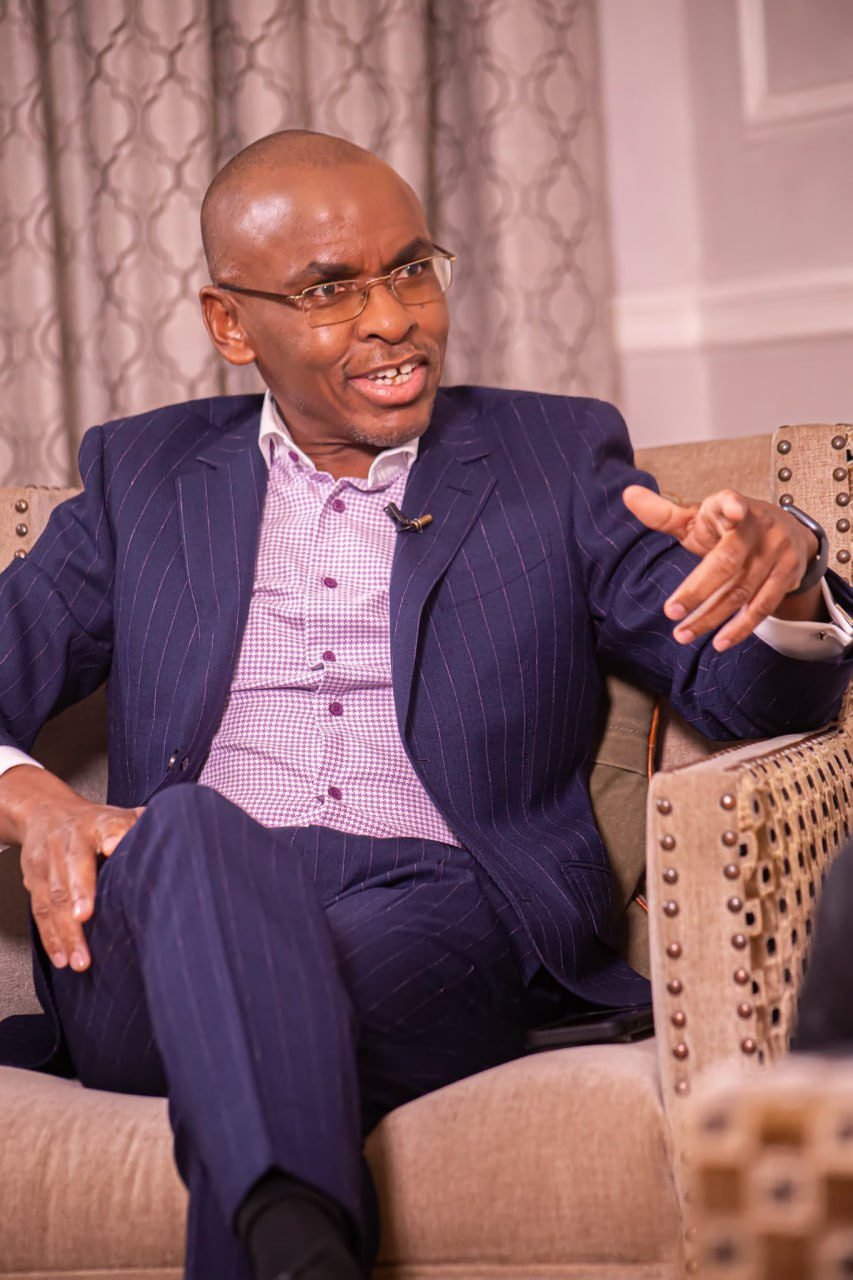[ad_1]

Safaricom PLC is the leading telecommunications company in the country, with over 35 million subscribers and a market share of 65.7% as of December 2022.
The company is known for its innovative products and services, such as M-PESA, the mobile money platform that has transformed the lives of millions of Kenyans.
Safaricom is also a purpose-led technology company that aims to transform lives by providing solutions that are simple, transparent and honest.
But what are the secrets behind this successful company?
Peter Ndegwa, the first Kenyan CEO of Safaricom, recently shared his insights on the “WhatsYourStory” show on KTN TV, hosted by Catherine Mwangi.
In a candid and inspiring conversation, Ndegwa revealed his achievements, challenges and vision for the future of Safaricom.
Reducing prices, increasing value
One of the main highlights of the interview was Ndegwa’s announcement that Safaricom had reduced its data prices by 70% and its voice prices by 45% in the past three years.
He said that this was done to make communication more affordable and accessible for Kenyans, especially during the COVID-19 pandemic.
He also said that Safaricom had tripled the amount of data used and doubled the value of transactions in M-PESA in the last three years.
He attributed this to offering more service and better service to customers, as well as innovating new products and services that met their needs.
“We have reduced our data prices by 70% in the past three years. We have reduced the voice prices by about 45%. We have tripled the amount of data used and doubled the value of transactions in M-Pesa in the last three years,” Ndegwa noted.
These figures underscore Safaricom’s dedication to affordability and accessibility, reflecting their pivotal role in propelling Kenya’s digital transformation.
Empowering hustlers with Hustler Fund
Another key highlight of the interview was Ndegwa’s explanation of how Safaricom was empowering hustlers across the country with the Hustler Fund.
The Hustler Fund (also known as The Financial Inclusion Fund), rolled out on 30 November 2022, aims to provide loans to hustlers to invest in their activities.
Ndegwa emphasized that the Hustler Fund addresses the financial needs of the vast number of Kenyans engaged in informal economic activities, constituting 85% of the population according to the Kenya Kwanza manifesto.
These individuals, often marginalized at the economic base, harbor entrepreneurial potential yet face barriers such as limited access to credit, high interest rates, collateral demands, and weak credit histories.
The Hustler Fund addresses these market inefficiencies by supplying affordable credit without collateral or credit history requirements.
“We were able to do the hustler fund because we had a credit platform,” Ndegwa noted.
He highlighted that the fund aids hustlers in building their credit profiles by reporting repayment data to credit reference agencies, enabling them to eventually access more credit from alternate sources.
Beyond financial assistance, Ndegwa underscored the fund’s role as a social protection measure, assisting hustlers in managing shocks and emergencies.
The fund has disbursed more than Kshs. 100 billion in loans, boasting a repayment rate surpassing 95%.
Notably, the fund received an injection of Kshs. 10 billion from the Treasury in the 2023/24 budget and was engaged in discussions with the World Bank and other development partners for additional funding.
In alignment with Safaricom’s ethos of offering transparent, straightforward solutions, Ndegwa expressed that the Hustler Fund mirrors the company’s objective of fostering positive change.
“We believe that everyone deserves an opportunity to succeed, and that is why we are supporting hustlers across the country.”
He affirmed the fund’s alignment with the government’s broader agenda of national transformation, encompassing job creation, poverty reduction, inequality alleviation, and social cohesion.


Leading through a crisis
Ndegwa also shared his personal and professional journey, and how he faced the challenges of leading Safaricom during a crisis.
He mentioned his entry to Safaricom in April 2020, amid the global COVID-19 pandemic, which presented considerable difficulties.
Leading a team he hadn’t met physically required rapid adaptation.
He explained, “When I joined, I didn’t see some of my team members due to covid. If there is a crisis, you need to adapt.”
Regarding his role as a CEO, Ndegwa highlighted the pivotal importance of people.
He expressed his preference for team members who could challenge him and emphasized the value of diverse perspectives.
He said, “I always want to recruit people who challenge me.”



He underlined the significance of frontline employees, stating, “About 2/3 of our people are those who talk to customers one on one. That’s the most important part of our workforce.”
Addressing the complexities of his transition, involving family, country, and sector, Ndegwa stressed the need to balance respect for the present and the pursuit of a desired future.
“You always have to respect what you find but you also have to shape the future you want to create.”
He discussed the challenges of managing his personal and professional life, especially in a different industry from his background.
Ndegwa pointed out that the Safaricom spirit, characterized by four core values – purpose, innovation, customer-centricity, and collaboration – played a crucial role in navigating the crisis.
“The Safaricom spirit is what drives us to do what we do every day.”
These values guided decision-making, ensuring solutions that had a meaningful impact on various aspects of people’s lives.
Looking ahead
During the interview, Ndegwa emphasized Safaricom’s distinctive approach of collaborating with its competitors as partners, rather than adversaries.
He underscored the company’s recognition that achieving its goals required more than solitary efforts, necessitating fruitful partnerships to enhance value for customers and society at large.
He outlined Safaricom’s openness to forging additional partnerships with other market players, as long as these collaborations were aligned with the company’s overarching purpose and core values.
In his own words, Ndegwa stated, “We have decided to work with our competitors as partners. It is important to be agile so that we are always ahead and work on products that take us there.”
Ndegwa communicated Safaricom’s vision to serve as a platform that not only succeeded itself but also enabled the success of others, thus fostering a collaborative ecosystem.
Concluding the interview, Ndegwa offered a rare glimpse into the mind of a visionary leader, and Safaricom’s trajectory under his stewardship seems poised to continue shaping Kenya’s digital landscape while leaving an indelible mark on the nation’s economic and social fabric.
Safaricom’s future lies in collaboration, innovation, and social responsibility.
[ad_2]
Source link



